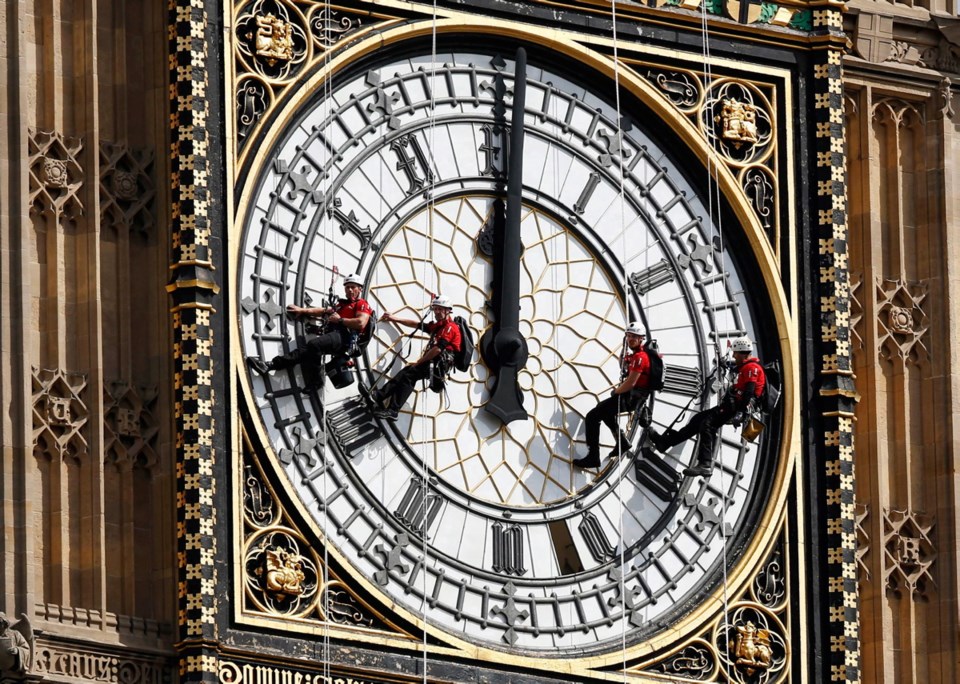What a difference a week makes. It’s only Sunday, and we’re already down an hour of sleep time this week. Over the next couple of weeks, we’ll be adjusting to what might be B.C.’s last shift to daylight saving time.
Everything will feel just a bit off, as our body clocks try to catch up with the regimented requirements of modern life.
We’ll adjust, however, as we’ve done twice each year since daylight saving time was introduced to save fuel and resources during the First World War.
What a difference a year makes.
A year ago, the battle to ban the seasonal time change was in full swing.
And in October, after years of lobbying, arguing and positioning, it happened. The B.C. government passed a measure to end seasonal time changes. The amendment allows the province to shift B.C. to permanent Pacific Daylight Saving Time.
Premier John Horgan stated that he wants our key trading partners up and down the coast to also make the jump. Staying in time lockstep with the western U.S. is essential for airlines, emergency and other services.
However, the B.C. government has left room for the province to forge ahead on its own if need be.
What a difference an hour makes.
A number of studies link the springtime time shift to more traffic accidents. The first such study, at the University of British Columbia, analyzed national data from 1991 and 1992 and concluded accidents increased by about eight per cent on the Monday after the clock was turned forward. They also found accidents declined by about the same amount following the autumn switch back to standard time, when people gain an extra hour of sleep.
Other studies elsewhere followed. In the most recent, from this January, University of Colorado researchers say a six per cent increase in fatal road accidents occurs in the U.S. in the week after the time change each spring, leading to more than 28 deaths a year. The effect is most pronounced in the morning and in areas to the west within a time zone.
That said, a review of 16 of the studies shows the results are not at all clear-cut. Several suggested a decreased risk, and seven found no significant difference one way or the other. Another review, of 24 studies, shows the short-term effects of switching to daylight saving time on traffic-collision risk were inconsistent, and the long-term effects suggested a positive effect.
Similarly inconclusive results apply across the numerous studies into the effect of the time change on risk and rates of heart attacks.
If the links do exist, however, eliminating the time change is a pretty superficial response to a much more basic, pernicious and widespread problem. One hour more or less of sleep twice each year shouldn’t make that much of a difference. And it likely wouldn’t — if we were getting enough sleep throughout the week and year.
But we know that’s not happening. A poll conducted in December by Research Co. is the latest among numerous polls and studies suggests only one-third of Canadians meet Health Canada’s sleep guidelines, with the rest sleeping for less than seven hours on a typical weekday or workday night.
The details vary, but the poll’s results echo other studies.
If we have bad sleep habits and if we’re persistently sleep-deprived, losing an hour of sleep — at whatever time of year and for whatever reason — could make a difference to our health and safety.
As we saw last fall, getting rid of seasonal time changes makes for good photo ops and citizen engagement. It provides government with easy ways to show they’re responsive, getting things done and putting citizens interests first.
But it misses the boat.
Addressing the social and societal issues that regularly keep us from getting the sleep we need to be as healthy and productive as we can be would be a more productive use of everyone’s energy and time, with wider-reaching, longer-term benefits for all.
With all the many complex and intertwined contributing factors, it would also be more difficult — much more difficult — to accomplish. There’d be no checkmarks on government to-do lists, no victory laps by those seeking easy solutions to complex issues, and no photo ops.
But — eventually — there’d be healthier, better rested people.



